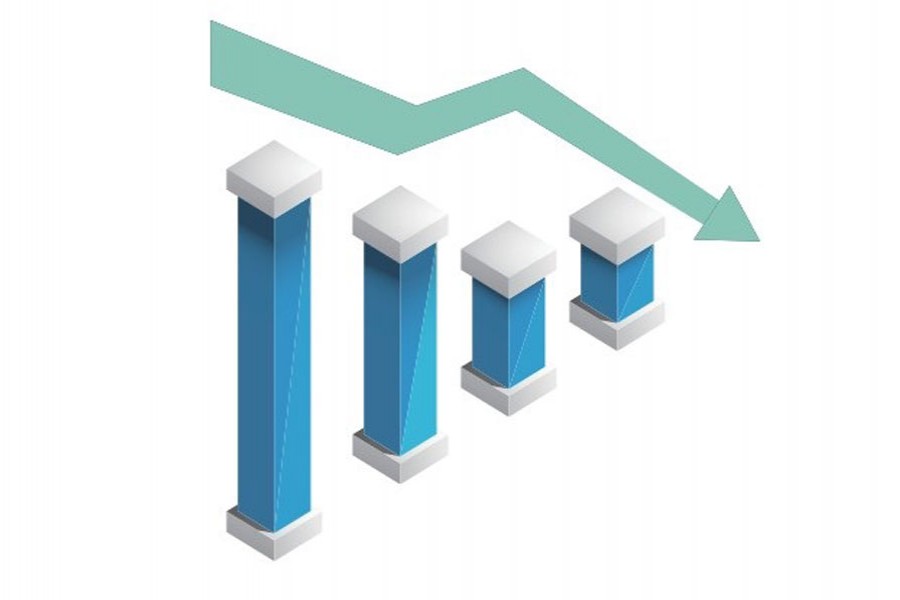The private-sector credit growth dropped significantly in February as some banks, particularly private ones, faced liquidity pressure due mainly to unavailability of deposits, bankers said.
Credit growth fell to 12.54 per cent this February on a year-on-year basis from 13.20 per cent a month ago, showed the central bank's latest statistics released on Thursday.
This growth was 3.96 percentage points lower than the Bangladesh Bank (BB)'s target of 16.50 per cent for second half (H2) of the current fiscal year.
"Some banks are still facing liquidity pressure due to unavailability of funds, especially individual deposits," a senior executive of a leading private commercial bank told the FE.
He said individual deposits are being diverted to government schemes due mainly to higher interest rates on public savings instruments than deposit rates offered by the banks.
Currently, banks are offering interest rates on term deposits ranging between 6.00 per cent and 11 per cent.
However, most of the offered rates were fixed at 9.50-10.50 per cent.
On the other hand, yields on national savings certificates have been fixed between 11 per cent and 12 per cent.
The current trend in the private-sector credit growth may continue in the coming months until liquidity situation improves, the private banker cited.
Talking to the FE, Syed Mahbubur Rahman, chairman of the Association of Bankers, Bangladesh, said some banks have already squeezed loan disbursements due to liquidity pressure in the market.
Meanwhile, the weighted average call money rate rose to 4.54 per cent on Monday from 4.53 per cent a week ago.
The volume of overall transactions in the market came down to Tk 31.35 billion on the day from Tk 36.85 billion a week ago, the BB data showed.
Some banks also maintained a 'go-slow' policy for loan disbursements as they were taking preparations to comply with the revised advance-deposit ratio (ADR) rules, Mr Rahman said.
He said this while explaining the falling trend in private credit growth in February.
Earlier on January 30, 2018, the BB slashed the ADR limit to help check any possible liquidity pressure on the market due to the banks' 'aggressive' lending.
The ADR has been re-fixed at 83.50 per cent for all conventional banks and at 89 per cent for Shariah-based Islamic banks.
The existing ratios are 85 per cent and 90 per cent respectively for them.
The banks had to adjust it gradually by June 30, 2018.
Later, the BB extended the deadline thrice for the implementation of the revised ADR by banks.
Under the extended timeframe, the banks are allowed to implement the revised ADR limit by September 30 instead of March 31, 2019.
However, the total outstanding loans with the private sector rose to Tk 9,703.49 billion in February 2019 from Tk 8,622.25 billion a year ago.
It was Tk 9,638.08 billion in January 2019.
"We're trying to keep the money market stable using different monetary instruments," a BB senior official told the FE in reply to a query on the latest market situation.


